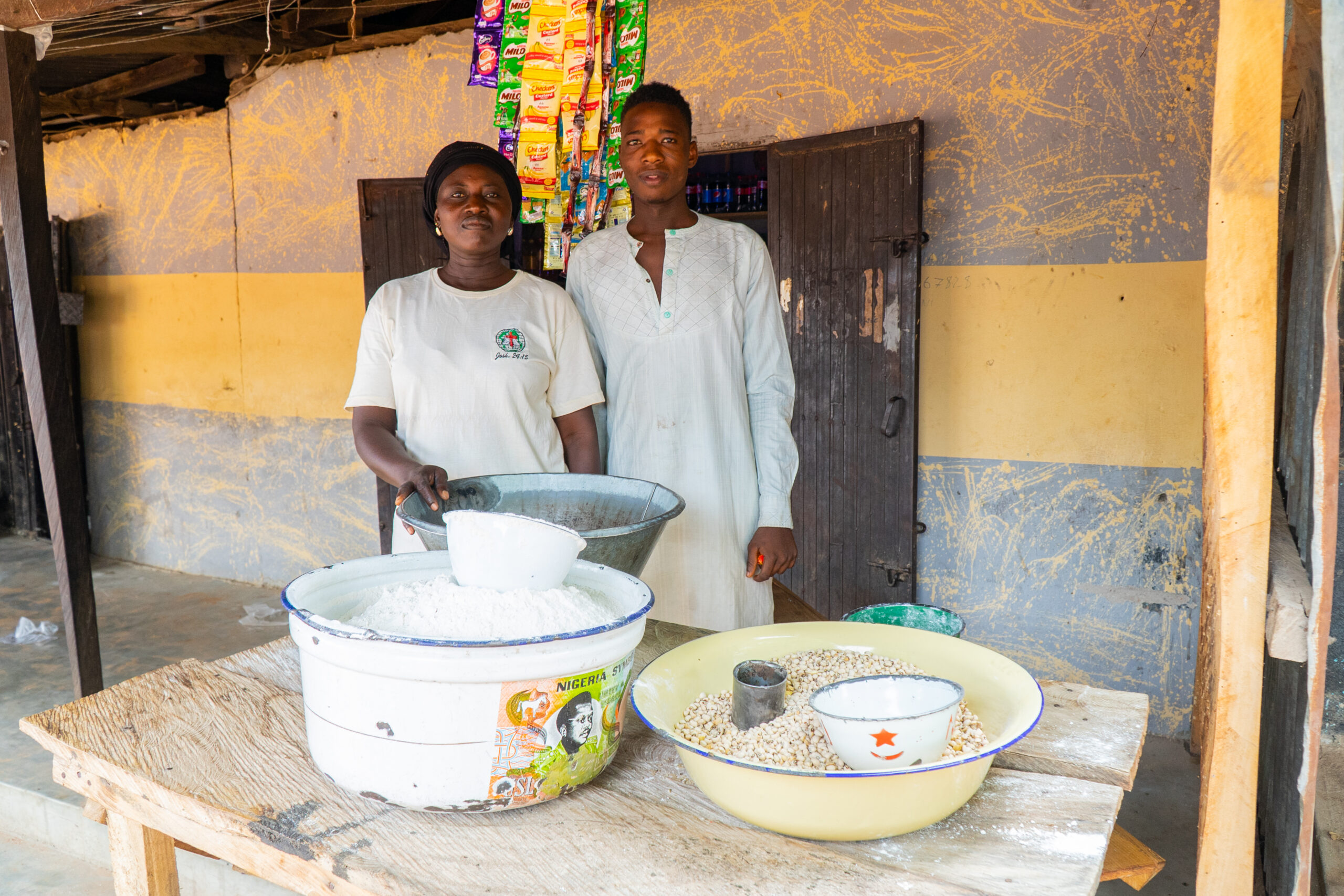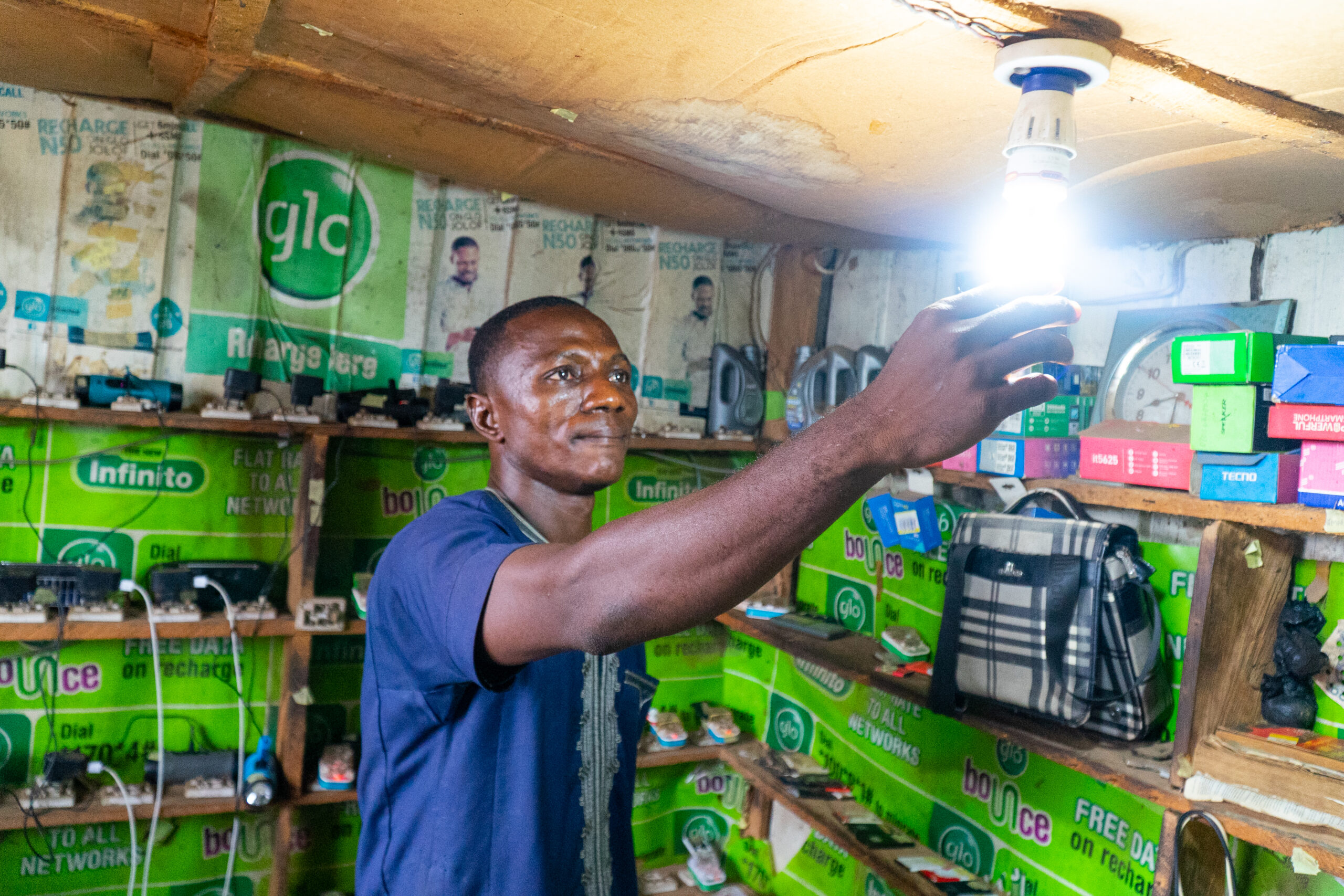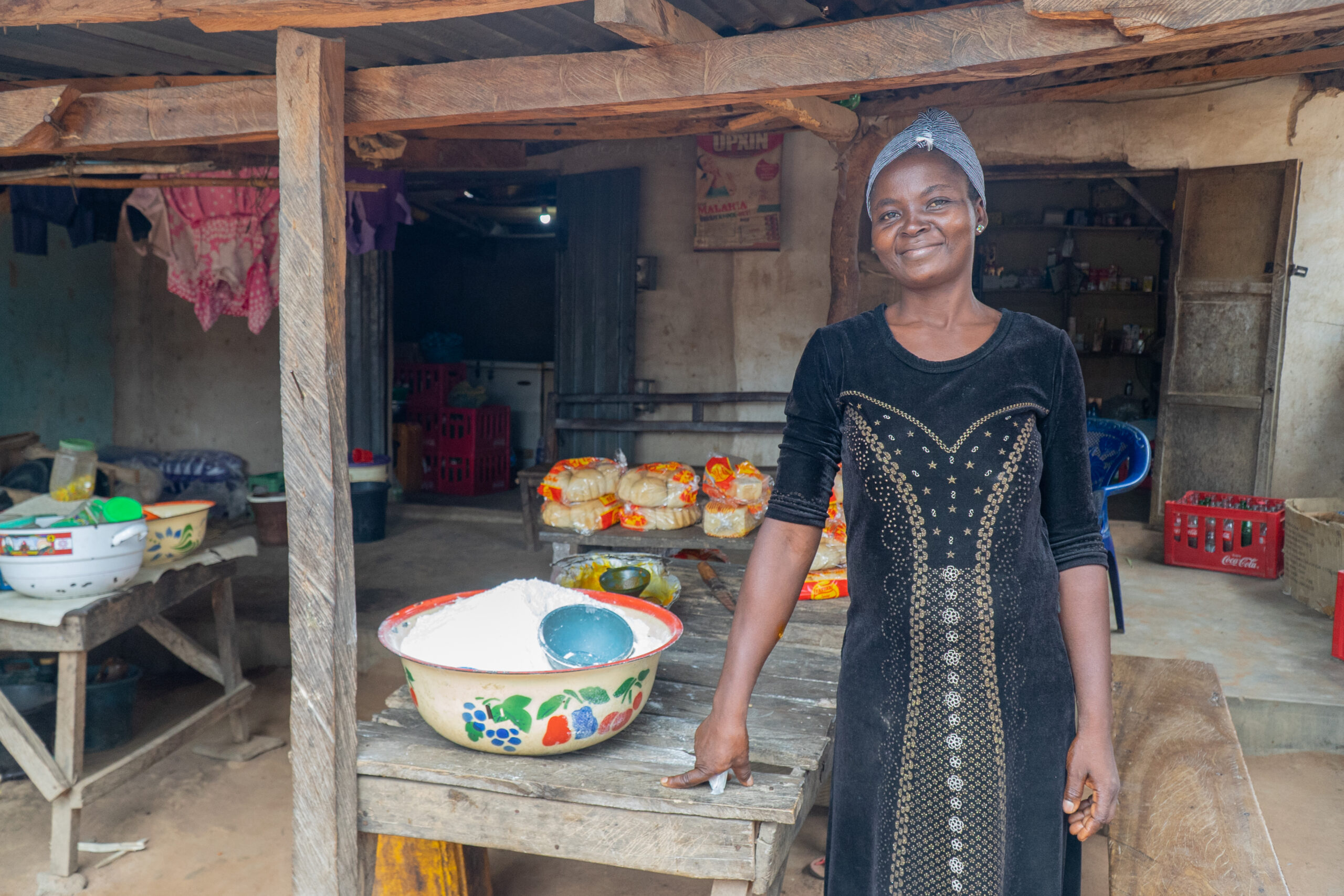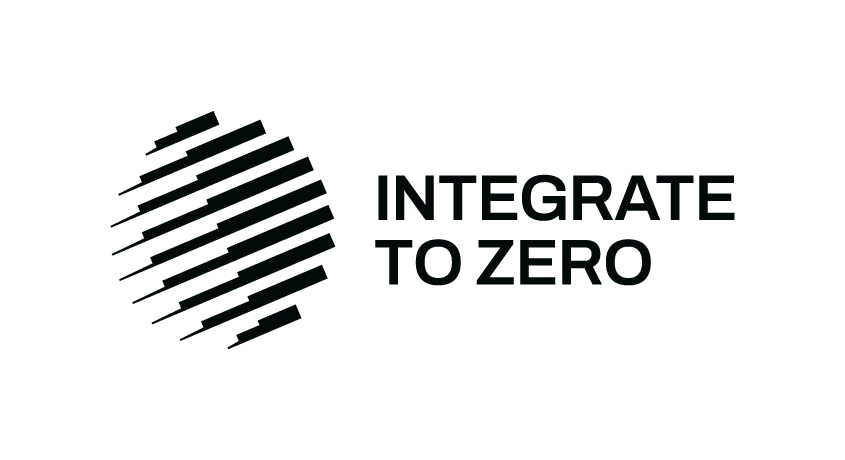In addition, digital innovation helps customers pay for and manage their energy use through a mobile app. Husk uses smart technologies including Artificial Intelligence, Internet of Things, and Geographic Information Systems to automate the monitoring and management of its fleet of minigirids, and determine which communities are a fit for future expansion.
This all adds up to a sustainable business model, one that allowed Husk to become profitable in the final months of 2022. The model can bring energy to millions of homes and enterprises that currently have no hope of connection to a national grid.
Husk has already powered up thousands of shops and cafes, rice mills, motorbike taxis and a host of other businesses. As well as supporting small businesses, Husk partners with other adjacent industries to bring essential infrastructure to communities. Examples include the village of Kiguna in Nasarawa State, where Husk helped introduce a shared cold storage room for the local fish market and a new mobile phone tower.
Husk is also introducing new innovative services and educating local people on how they benefit. In the village of Igbabo, it has helped motorbike taxi riders switch to electric vehicles. Husk’s support includes managing a motorbike leasing service, battery swapping and training riders on bike maintenance. In each community it reaches, Husk works with a Village Power Committee featuring local stakeholders such as young people, women, local farmers and others, who give their advice and feedback.

Before a minigrid came to Igbabo, shop owner John Dauda Buhari relied on a diesel generator for energy. This brought daily fuel costs, and at times diesel was hard to come by. The generator would also need repairs and servicing, sometimes as often as three times a week. As his employees didn’t have the skills to do this, it was hard for him to leave the store.
He believes that in two to three years, everyone in his community will be connected to Husk. Local businesses typically see at least a 30% reduction in monthly energy bills by switching from diesel to solar.

In Kiguna another shop owner, Nneaya Okorie, is using clean energy to power a fridge for chilled drinks. People from neighbouring communities come to buy from her store, particularly during the dry season. She says: “I am very happy with this electricity and my business has progressed.”

